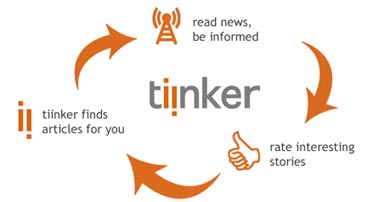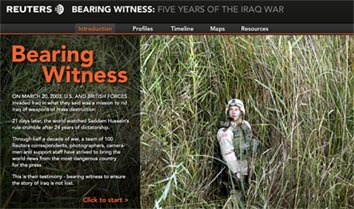Top 50 US news sites for February 2008, according to Nielsen Online.
(Also, have a look at: February Worries Boost News Traffic)
Brand Uniques (000) Time Per Person (hh:mm:ss)
All Events & Global News 101,336 127:01
CNN Digital Network 37,181 0:40:11
Yahoo! News 35,274 0:23:10
MSNBC Digital Network 34,013 0:29:50
AOL News 21,119 0:36:14
NYTimes.com 18,975 0:33:29
Tribune Newspapers 14,716 0:10:09
Gannett Newspapers 13,998 0:21:28
ABCNEWS Digital Network 12,324 0:09:54
Google News 12,050 0:10:14
WorldNow 10,588 0:13:16
USATODAY.com 10,571 0:14:16
Washingtonpost.com 10,441 0:17:30
Fox News Digital Network 10,177 0:41:10
CBS News Digital Network 9,970 0:09:09
Hearst Newspapers Digital 8,349 0:17:38
McClatchy Network 8,343 0:11:41
IB Websites 7,565 0:11:00
Advance Internet 6,791 0:13:08
BBC News 6,437 0:10:42
Slate 6,261 0:07:29
Gannett Broadcasting 6,174 0:09:18
Topix 6,121 0:06:30
MediaNews Group 5,850 0:12:41
Associated Press 5,353 0:07:03
Cox Newspapers 5,197 0:20:08
Boston.com 4,904 0:07:47
Belo Television 4,827 0:05:58
Fox Television Stations 4,758 0:06:06
New York Post Holdings 4,605 0:09:12
NewsMax.com 4,054 0:10:35
TheHuffingtonPost.com 3,749 0:08:04
Freedom Interactive 3,613 0:07:51
Daily News Online Edition 3,563 0:06:46
Belo Newspapers 3,476 0:05:52
Drudgereport.com 3,445 0:59:49
Guardian.co.uk 3,391 0:02:49
Daily Mail 3,364 0:09:11
Telegraph 2,990 0:03:39
Times Online 2,852 0:06:37
Community News Network 2,846 0:10:40
Swift Newspapers 2,750 0:05:42
Scripps News Group 2,713 0:18:00
Netscape 2,709 0:11:03
Breitbart.com 2,674 0:09:20
Int Herald Tribune 2,598 0:02:02
Fisher Interactive Network 2,526 0:05:08
Seattle Times Network 2,245 0:11:03
Philly.com 2,204 0:04:52
Chicago Sun-Times 2,203 0:08:29
Star Tribune 2,108 0:25:08




